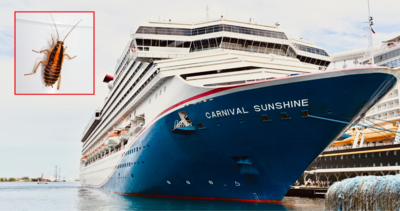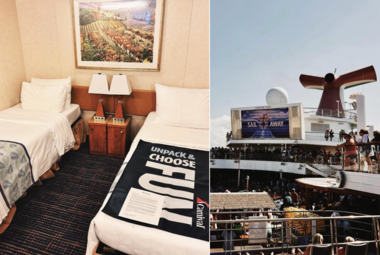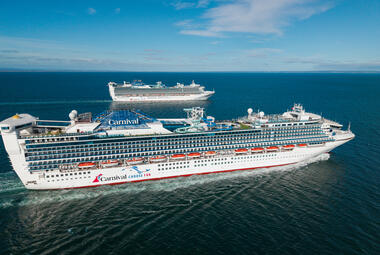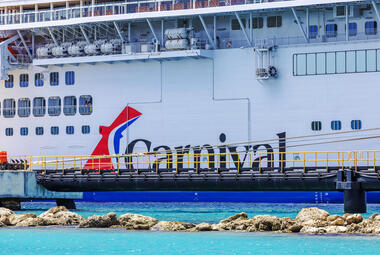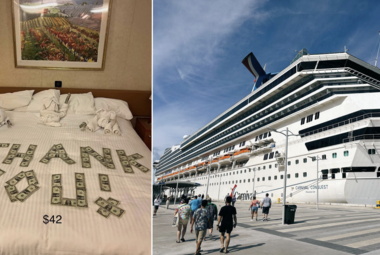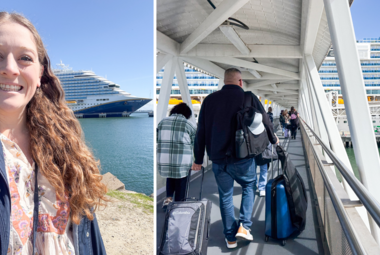Carnival Cruise Line’s oldest ship, Carnival Sunshine, barely passed a recent health inspection by the Centers for Disease Control (CDC). The vessel received a barely passing score of 89/100 during a routine health check by the CDC, which is only a few points above the passing threshold.
Cruise ships need to receive a score of 86 or higher in order to pass routine health inspections. The CDC conducts these health inspections to ensure vessels are safely operating and following official guidance.
Unfortunately, Carnival Sunshine had 26 different violations during the inspection, which was conducted under the CDC Vessel Sanitation Program (VSP) and shared in a detailed report. The inspection took place on March 8, 2025, leading to the almost-failing score for Carnival Sunshine.
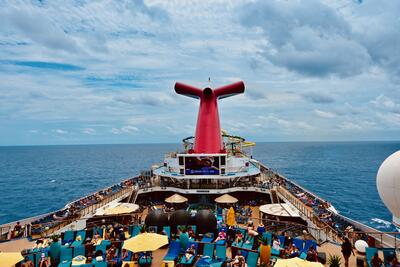
Some of the more serious violations included a lack of pest control management, such as cockroaches in the food servicing areas, and employees working while experiencing illness symptoms. Other critical issues included malfunctioning refrigerators, damaged flooring, and leaking water lines.
These violations indicate multiple areas of concern for sanitation and health procedures on Carnival Sunshine. Following the CDC’s inspection of the vessel, Carnival must provide corrective action to address these violations and prevent future issues.
In general, it's common for cruise ships to typically score in the 90s for CDC health inspections. Some vessels even receive perfect health scores. However, any scores below 90/100 would be considered unusually low. Only two ships have received a score below 90/100 this year, namely Royal Caribbean’s Symphony of the Seas with 57 violations, and now Carnival Sunshine.
The detailed report reveals Carnival Sunshine was cited for 26 health and safety violations

Carnival Sunshine was docked for multiple health violations, ranging from minor issues to serious findings. For instance, a few of the minor violations included an ice bin door being left open and cracked serving food trays.
However, the more serious violations are quite concerning and bring into question the sanitation and maintenance stands of Carnival’s oldest cruise ship.
One of the most alarming findings in the CDC inspection report involved a Carnival food service employee who began experiencing gastrointestinal symptoms. The employee reported the onset of gastrointestinal symptoms starting at 1:00pm on December 13, 2024; however, the employee continued working.
Apparently, the sick employee finished working at 4:40pm and reported to the medical center by 5:45pm, leading to a food risk assessment and training that needed to be completed.
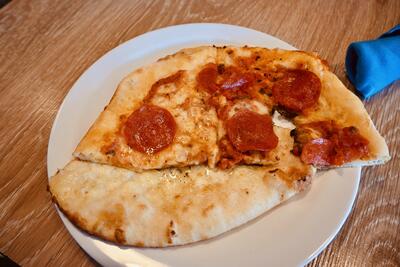
Per CDC guidelines, any employees who experience symptoms, including vomiting and diarrhea, should be immediately isolated and restricted from handling food for a minimum of 48 hours. Considering the close quarters on a cruise ship and the contagious nature of gastrointestinal illness, failure to comply with these rules can lead to rapid spreading of illness among passengers and crew members.
In addition to illness reporting violations, another concerning finding was the presence of pest infestations in food servicing areas. In fact, the CDC reported multiple instances of insects onboard, highlighting potential issues with pest control.
The detailed report shares that a cockroach was seen crawling under bins of flour in the crew galley. Another cockroach was also seen crawling under storage racks on the Deck 9 Lido Galley.
Other insect issues included fruit flies found around the coffee machine at the Lido Marketplace buffet onboard near the entrance of the main galley. More fruit flies were seen in the pot washing station and around the pre-hose on Deck 3 as well.
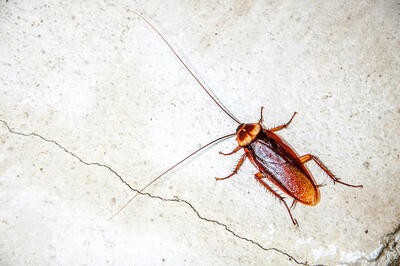
Further violations surround refrigeration failures and food temperature issues, with several violations noting improper temperature control for safety. The CDC report details how the refrigeration unit in the Italian restaurant, Cucina del Capitano, couldn't maintain the required temperature of 41°F or less.
More details were provided for other instances of temperature violations, including ham and cheese sandwiches measuring between 49°F – 50°F and Cuban sandwiches being stored in the same unit, measuring 44°F. Moreover, the inspection showed raw meatballs being stored at 49°F.
In addition, the CDC report noted how the inside of a walk-in refrigerator unit measured an alarming 56°F at Cucina del Capitano. The employee on duty stated the temperature was due to an ongoing defrost cycle.
Along with these major violations, Carnival Sunshine was docked for having plumbing issues, poor cleaning procedures, and damaged equipment
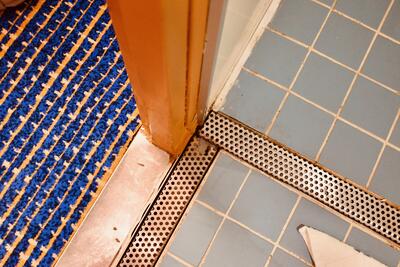
While these major issues are concerning, Carnival Sunshine was also reported for having multiple violations for plumbing issues, damaged equipment, water accumulation, and bacteria-breeding surfaces.
Inspectors noted multiple instances of damaged equipment and difficult-to-clean surfaces. This could lead to food contamination, as improperly maintained equipment could result in bacteria growth, which is a significant health risk for crew members and passengers alike.
A few examples of these violations included a leaking soup kettle, 20 different chipped serving trays, and internal gaps in a potato peeler with trapped food residue.
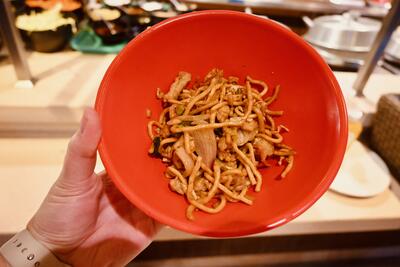
Plumbing issues were also documented, which contribute to unsanitary conditions onboard the vessel. These water leaks and water pooling issues were noted in multiple places onboard.
For instance, one of the portable water lines in the housekeeping pantry caused water to collect near a handwashing station, while a blocked drain at the forward ice station resulted in grey water accumulating on the deck.
Finally, inspectors found several areas where food residue and grime had accumulated on equipment and across services. This included yellow residue found on the inside of the basin in a handwashing sink and grout cracking and missing in multiple areas, leading to trapped food residue and moisture. Dust and debris were also found coated on the top surface of a time control unit.
Carnival Cruise Line will need to provide corrective action in the coming weeks
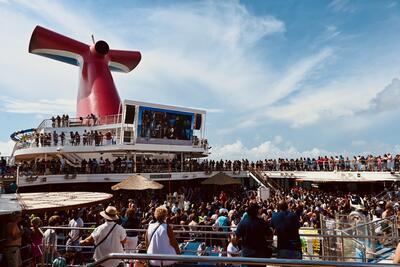
Considering many of these critical violations, Carnival Cruise Line must provide a detailed report on how it plans to address these concerns. Although the ship technically passed its inspection, the health violations highlight issues and challenges with maintaining health and safety on Carnival Sunshine.
The Corrective Action Statement will outline the intended actions to correct the identified problems and ensure the safety of guests and crew. In addition, the ship could be subject to follow-on inspections due to this lower-than-expected score.
Carnival Sunshine is the oldest ship in Carnival’s fleet, launching first as Carnival Destiny in 1996. The vessel underwent a massive refurbishment in 2013, in which the ship was gutted to its hull and redesigned entirely. The revamped cruise ship was renamed Carnival Sunshine to represent a new era.
Although Carnival Sunshine was previously sailing from Charleston, South Carolina, the ship now sails from Norfolk, Virginia. The vessel recently received routine dry-dock servicing in Marseille, France, back in January before returning to Norfolk.


